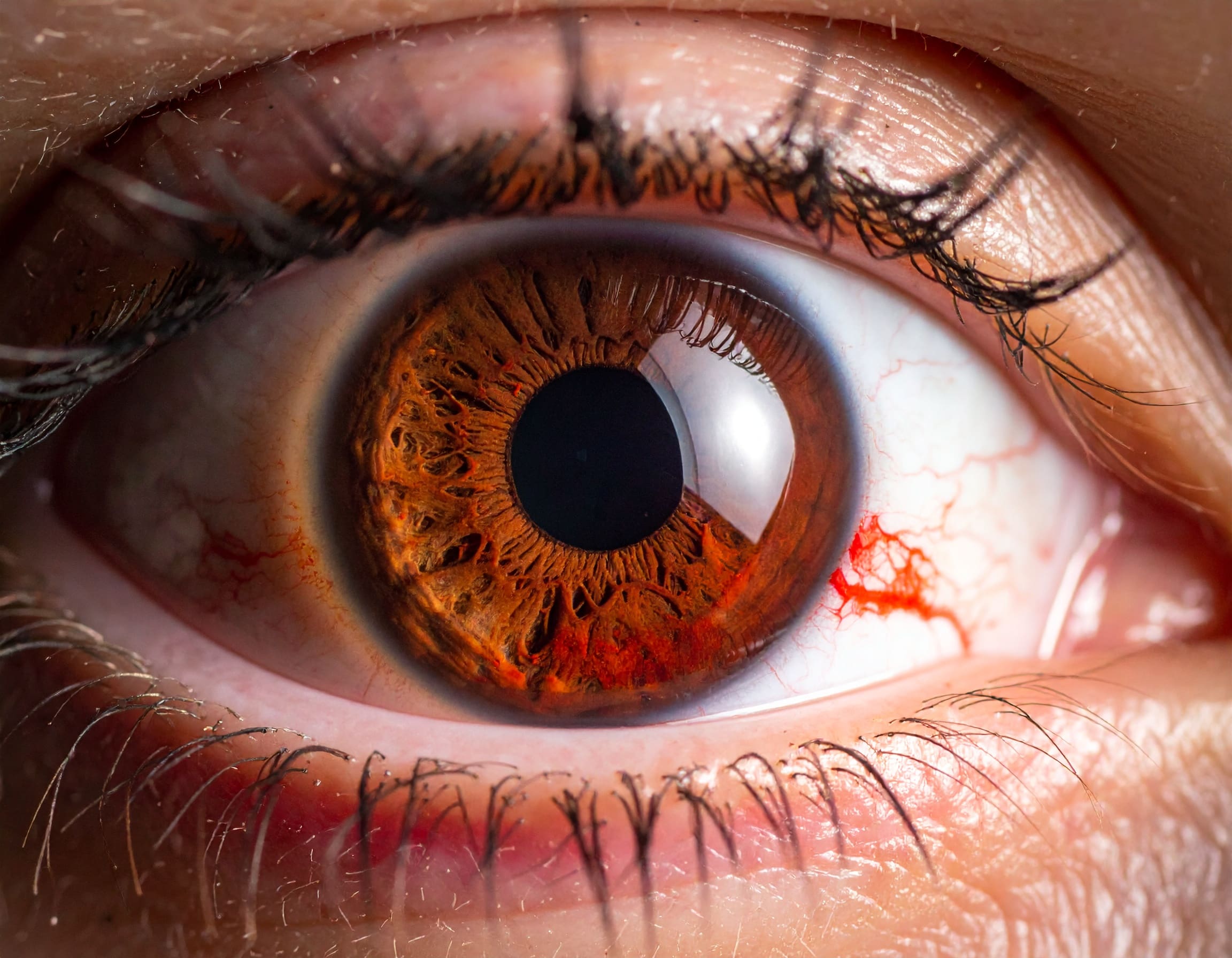Wearing contacts is on the whole a wonderful, freeing, and often life-changing experience. But true to “every rose has its thorns” philosophy, there can be some irritating issues lens wearers face from time to time. Problems range from the mild (dry eyes) to the serious (corneal ulceration/infection). Some of the problems with lenses can be prevented, and many can be alleviated or treated. Read through these issues to understand what causes some of these common contact lens matters and what you can do to prevent or solve them.
Corneal Ulcerations
Corneal ulcerations are a more common occurrence in soft contact lens wearers. This makes sense because soft contact lenses are often a lot more comfortable and forgettable to the wearer, allowing one to wear them for extended periods of time, and as a result, many times leading to overnight use. Out of all the contact lens wearers in the U.S., there are an estimated 12,000 corneal ulcers per year. Factors that lead to these infections include: prolonged wear time, poor cleaning habits and sanitation, and dry eye syndrome. Another error contributing to infection: lubricating your contact lenses with your own saliva or on your tongue if cleaning supplies are not immediately available. This is a big no-no. To prevent corneal ulcerations, clean your contact lenses regularly (also be sure to clean your contacts case) with the proper cleansing fluids and procedures. Give your eyes a break, and don’t keep your contacts in for over-extended periods of time. Your eye doctor can tell you the proper range of wearing time for your eyes.
Eye and/or Eyelid Sensitivity
Another common problem that frequently happens with soft lenses is that lens wearers develop sensitivity of the eyes and lids, to either the cleaning and maintenance solutions or to mucus formation on the surface of the lens. Those experiencing sensitivity as a result of their contact lenses may notice symptoms that include: increased mucus, decreased lens movement, and redness of the conjunctiva (clear tissue overlying the white part of the eye). Generally, lens wearers facing these sensitivity issues may simply be required to discontinue wearing their contact lenses for a period of time (up to several months in come cases) then resume lens wear with new contact lenses and an alternate maintenance solution. An eye doctor will determine your individual needs and determine a proper new lens and solution.
Abrasion of the Cornea
With rigid lenses, abrasion of the cornea can result due to the rapid buildup of wearing time during the adaptation period to new lenses, especially with a contact lens that is not a proper fit. Wearing contact lenses for too many can also cause the problem. Signs and symptoms of corneal abrasions include pain and tearing. If you notice these symptoms, see your eye doctor right away. Symptoms can improve in as soon as 24 hours with proper treatments from an optometrist that may include patching and/or antibiotics applied to eye(s). Preventative measures include abiding by a proper wearing schedule and not keeping your contacts in for an overextended amount of time.
In general, the proper cleansing, handling and care of your contact lenses can prevent most of the issues lens wearers face! Here are some helpful habits for all contact lens wearers to adopt to help ensure problem-free wear:
- Wash your hands with soap before touching your lenses; avoid soaps with beeswax or lanolin which can irritate the eye.
- Ask your eye doctor about the best daily cleansing solution for your lenses and needs. Things like mucus and environmental pollutants can build up on your lenses so it’s important to keep them cleaned properly.
- Ask your eye doctor about an enzymatic cleaner to use weekly to remove residue from your lenses that your daily cleaner may have missed.
- Ask your eye doctor if he/she recommends disinfecting your contact lenses daily with a heat, chemical, or hydrogen peroxide system.
- Storing your lenses clean is just as important as wearing clean lenses; rinse your lens case and let it air dry on a regular basis.
- If you need to use hair spray, perfume, or spray deodorant (and other spraying products that are potential eye irritants) use it in another room before you insert your contact lenses.
- Apply eye make-up after inserting your contact lenses
- Anytime you notice your eyes become red or irritated, err on the side of caution and remove your lenses at once. It’s good to always carry your glasses with you in case irritation occurs. Should symptoms persist, call your eye doctor immediately.




